We’re here for you during these uncertain times. Our support team is always available - contact us anytime, 24/7!
Which States Don’t Allow You to Pump Your Own Gas
I'm sorry, but you haven't provided the text for me to rephrase. Please provide the text that needs rephrasing, and I'll be happy to help. The subtle art of being ridiculously lazy is challenging for some people. Not for you, because you have dedicated your life to being comatose. You’re not one of those normal functioning people. That’s why you can’t be bothered to perform mundane tasks. But, there’s just some responsibilities you can’t escape - like pumping your own gas. Why can’t you live in a state where people do work for you? How can you be lazy, if you don’t have the cornerstone of all laziness? Why do YOU have to pump YOUR gas? These are questions that any logical - and lethargic - person would ask themselves. That's why we’ve compiled the most extensive list of states and cities that will pump your gas for you. These are the last remaining U.S. locations that understand your mission to be carelessly lackadaisical. [framed_box]New Jersey
 Also known as the “mecca of full service gas retailers,” New Jersey is most notably recognized for having gas station pump attendants. In 1949, congress passed a statute titled the Retail Gasoline Dispensing Safety Act, which prohibited gas retail customers from pumping their own gas. To this day, New Jersey is the lone state that maintains this law, and requires a professional to pump your car’s gasoline.
When you’re caught violating this law, you could experience some pricey consequences. People who break the 1949 statute will be fined $50 to $250, and up to $500 for any proceeding offenses. If you thought gas prices were expensive, then you haven’t been caught pumping your own gas in New Jersey. There is good news for New Jersey drivers! You can save a lot of money, hundreds each year, on car insurance by taking a NJ Defensive Driving course!
[/framed_box]
[framed_box]
Also known as the “mecca of full service gas retailers,” New Jersey is most notably recognized for having gas station pump attendants. In 1949, congress passed a statute titled the Retail Gasoline Dispensing Safety Act, which prohibited gas retail customers from pumping their own gas. To this day, New Jersey is the lone state that maintains this law, and requires a professional to pump your car’s gasoline.
When you’re caught violating this law, you could experience some pricey consequences. People who break the 1949 statute will be fined $50 to $250, and up to $500 for any proceeding offenses. If you thought gas prices were expensive, then you haven’t been caught pumping your own gas in New Jersey. There is good news for New Jersey drivers! You can save a lot of money, hundreds each year, on car insurance by taking a NJ Defensive Driving course!
[/framed_box]
[framed_box]
Oregon
 An honorable mention should be given to the ex-lazy state of Oregon. Recently, Oregon passed a law that gives customers the right to pump their own gas. This is bad news for the state’s professionally exhausted people. If you wanted to do actual work, you wouldn’t have taken online traffic school courses, or bought that text to speech converter so you could listen instead of reading this article.
Despite these challenging times, there’s an apathetic light at the end of the tunnel. The law only takes effect on counties with population less than 40,000 residents. In other words, densely populated regions of the state will still have their full-service pumps. This means Portland will become the west coast home for all lazy drivers. For the un-lazy, you can take a quick and easy OR Auto Insurance discount course.
[/framed_box]
[framed_box]
An honorable mention should be given to the ex-lazy state of Oregon. Recently, Oregon passed a law that gives customers the right to pump their own gas. This is bad news for the state’s professionally exhausted people. If you wanted to do actual work, you wouldn’t have taken online traffic school courses, or bought that text to speech converter so you could listen instead of reading this article.
Despite these challenging times, there’s an apathetic light at the end of the tunnel. The law only takes effect on counties with population less than 40,000 residents. In other words, densely populated regions of the state will still have their full-service pumps. This means Portland will become the west coast home for all lazy drivers. For the un-lazy, you can take a quick and easy OR Auto Insurance discount course.
[/framed_box]
[framed_box]
Huntington, New York
 Just like a pond of freshwater in a scathing desert wasteland, Huntington, New York is a lazy oasis in the bustling state of New York. Huntington escaped the thwarting grasps of responsibility and allows full-service gas retailers in the city. The reason why this old law is still around is a bit foggy, but we know the real reason. The city is just a proponent of putting in the least amount of effort as possible.
During the 1980’s, fire safety became a major concern for the Huntington Fire Department. Pumping your own gasoline was believed to be a fire hazard. Therefore, not long after, Huntington passed a city-wide regulation that would require gas retailers to offer full-service pumps. Any driver who is caught fueling their own vehicle would experience the repercussions of heavy fine payments. It doesn't matter what NY city you live in to take advantage of the mandated 3-year savings you'll receive when completing a NY Defensive Driving Course. Check it out now.
Whether you’re living in the west coast or the east coast, there’s plenty of opportunity to exert your laziness. If these states or cities aren’t nearby, then consider hiring your own personal gas station attendant, because being lazy is an often-overlooked bliss.
[/framed_box]
Just like a pond of freshwater in a scathing desert wasteland, Huntington, New York is a lazy oasis in the bustling state of New York. Huntington escaped the thwarting grasps of responsibility and allows full-service gas retailers in the city. The reason why this old law is still around is a bit foggy, but we know the real reason. The city is just a proponent of putting in the least amount of effort as possible.
During the 1980’s, fire safety became a major concern for the Huntington Fire Department. Pumping your own gasoline was believed to be a fire hazard. Therefore, not long after, Huntington passed a city-wide regulation that would require gas retailers to offer full-service pumps. Any driver who is caught fueling their own vehicle would experience the repercussions of heavy fine payments. It doesn't matter what NY city you live in to take advantage of the mandated 3-year savings you'll receive when completing a NY Defensive Driving Course. Check it out now.
Whether you’re living in the west coast or the east coast, there’s plenty of opportunity to exert your laziness. If these states or cities aren’t nearby, then consider hiring your own personal gas station attendant, because being lazy is an often-overlooked bliss.
[/framed_box]
Traveling To New Jersey Six Flags
 So, you've completed a NJ defensive driving course and scored a sweet discount on your auto insurance! It's time to spend that extra money on a worthwhile cause. Sure, you could hook up one of your in-laws with a comedy defensive driving course, too, but do you actually like them that much? Nah. Instead, take the whole family on a road trip to New Jersey Six Flags Great Adventure & Safari.
Six Flags is a fantastic destination all by itself, but the trip there can be a lot of fun, too. Here are some quirky, can't-miss sights:
So, you've completed a NJ defensive driving course and scored a sweet discount on your auto insurance! It's time to spend that extra money on a worthwhile cause. Sure, you could hook up one of your in-laws with a comedy defensive driving course, too, but do you actually like them that much? Nah. Instead, take the whole family on a road trip to New Jersey Six Flags Great Adventure & Safari.
Six Flags is a fantastic destination all by itself, but the trip there can be a lot of fun, too. Here are some quirky, can't-miss sights:
Six Things to See on the Way
[framed_box]Ashbury Park - Pinball Hall of Fame Silverball Museum Arcade
 This beautiful town, located on the coast, gives you amazing views of the shoreline and one of America's last pinball arcades. You can buy free play passes and let your kids go nuts on these classic old machines.
[/framed_box]
[framed_box]
This beautiful town, located on the coast, gives you amazing views of the shoreline and one of America's last pinball arcades. You can buy free play passes and let your kids go nuts on these classic old machines.
[/framed_box]
[framed_box]
Franklin - Franklin Mineral Museum
 The museum includes specimens of locally mined rocks which glow under UV lights. You can also edu-tain the kids with a two-story replica of a mine. There, you'll see historical equipment and mining re-enactments.
[/framed_box]
[framed_box]
The museum includes specimens of locally mined rocks which glow under UV lights. You can also edu-tain the kids with a two-story replica of a mine. There, you'll see historical equipment and mining re-enactments.
[/framed_box]
[framed_box]
Hammonton - Robot Auto Part Sculptures at El&M Auto Recycling
 Hop out of the car for a quick look at this scrap yard's innovative robot statues, created out of auto parts. The owners are friendly and encourage you to take photos.
[/framed_box]
[framed_box]
Hop out of the car for a quick look at this scrap yard's innovative robot statues, created out of auto parts. The owners are friendly and encourage you to take photos.
[/framed_box]
[framed_box]
Lyndhurst - Medieval Times Dinner Theater
 If you're staying in town overnight, you can celebrate, Renaissance Faire style, with a medieval-themed feast of foods designed to be dug into with your hands. While chowing down, you'll be entertained with traditional medieval spectacles like jousting, sword fights, falconry, and horsemanship.
[/framed_box]
[framed_box]
If you're staying in town overnight, you can celebrate, Renaissance Faire style, with a medieval-themed feast of foods designed to be dug into with your hands. While chowing down, you'll be entertained with traditional medieval spectacles like jousting, sword fights, falconry, and horsemanship.
[/framed_box]
[framed_box]
Stanhope - Waterloo Village
 This attraction is a partially restored historical site that includes old-timey elements like a water mill and a ghost town. The ghost town has several buildings, some restored and some left in their original, creepy condition to add to the atmosphere. Guided tours are available.
[/framed_box]
[framed_box]
This attraction is a partially restored historical site that includes old-timey elements like a water mill and a ghost town. The ghost town has several buildings, some restored and some left in their original, creepy condition to add to the atmosphere. Guided tours are available.
[/framed_box]
[framed_box]
Willingboro - Lucky's Unique Antiques
 For older kids or ones who like gothic and creepy things, this store may be a hit. Along with furniture and antiques you'll find taxidermy, preserved animals in jars, animal mummies, and even Victorian-era human skeletons.
[/framed_box]
[framed_box]
For older kids or ones who like gothic and creepy things, this store may be a hit. Along with furniture and antiques you'll find taxidermy, preserved animals in jars, animal mummies, and even Victorian-era human skeletons.
[/framed_box]
[framed_box]
Once You Get to Six Flags
 You made it to Jackson, NJ. Congratulations! Now the real adventure begins.
One new and popular attraction is the 'Justice League Battle for the Metropolis,' an interactive thrill ride in a 22,000-foot Hall of Justice building. You and your family will be issued laser guns and can fight the forces of evil there.
If you came for the rollercoasters, check out the 'Nitro.' This is one of the fastest rides in the park. You'll be propelled at up to 80 miles per hour over hills, along turns, and ending in a 540-degree helix spiral.
Really young children can enjoy the fun too with a wide variety of rides with height requirements of 36 inches or less. Check out the Foghorn Leghorn's Stagecoach Express. This themed ride takes kids on a magical journey through the Wild West.
[/framed_box]
[framed_box]
You made it to Jackson, NJ. Congratulations! Now the real adventure begins.
One new and popular attraction is the 'Justice League Battle for the Metropolis,' an interactive thrill ride in a 22,000-foot Hall of Justice building. You and your family will be issued laser guns and can fight the forces of evil there.
If you came for the rollercoasters, check out the 'Nitro.' This is one of the fastest rides in the park. You'll be propelled at up to 80 miles per hour over hills, along turns, and ending in a 540-degree helix spiral.
Really young children can enjoy the fun too with a wide variety of rides with height requirements of 36 inches or less. Check out the Foghorn Leghorn's Stagecoach Express. This themed ride takes kids on a magical journey through the Wild West.
[/framed_box]
[framed_box]
Tips:

New Jersey Transit vs. Driving
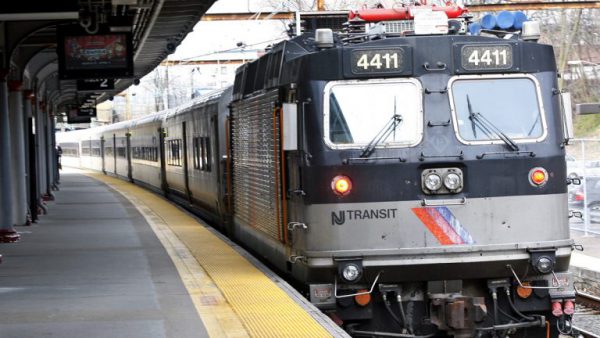 Commuting on New Jersey’s complex roads and highways is often a daunting ordeal, not just for the visitors but for the NJ locals as well. One slight misstep when selecting your transport means, you risk ruining that holiday you’ve been saving for ages or missing out on that life-changing interview in NJ. Driving and using the New Jersey transit are the two most popular transportation means up for grabs for those persons on a month-long business trip or traveling packs of students. NJ roads and the drivers therein are reputed to be just as frantic and hectic as those of the neighboring Big Apple State.
If you intend to rent out a car to use during your stays in New Jersey, then it’s imperative you first sign up for the advanced defensive driving certification exam right away. Driving has its pluses and minuses, so too does transiting in NJ.
Read on to understand the unique pros associated with each of these popular transportation methods for visitors and locals in NJ. The ultimate decision, however, on the mode of transport method preferred while in New Jersey, solely rests on personal factors, for instance, your budget, tastes, the number of people, and the duration of the stay.
[framed_box]
Commuting on New Jersey’s complex roads and highways is often a daunting ordeal, not just for the visitors but for the NJ locals as well. One slight misstep when selecting your transport means, you risk ruining that holiday you’ve been saving for ages or missing out on that life-changing interview in NJ. Driving and using the New Jersey transit are the two most popular transportation means up for grabs for those persons on a month-long business trip or traveling packs of students. NJ roads and the drivers therein are reputed to be just as frantic and hectic as those of the neighboring Big Apple State.
If you intend to rent out a car to use during your stays in New Jersey, then it’s imperative you first sign up for the advanced defensive driving certification exam right away. Driving has its pluses and minuses, so too does transiting in NJ.
Read on to understand the unique pros associated with each of these popular transportation methods for visitors and locals in NJ. The ultimate decision, however, on the mode of transport method preferred while in New Jersey, solely rests on personal factors, for instance, your budget, tastes, the number of people, and the duration of the stay.
[framed_box]
Cost
Traveling via the New Jersey transit network is without a doubt, the safest and most cost-effective, transport means in this state. Driving on these road networks can, however, be an expensive money pit affair. Auto owners always need to cough up cash to cater fuel and ensure their vehicles. Additionally, the cost of operating cars increases as you dole out money for parking and other routine servicing and maintenance services. [/framed_box] [framed_box]Traffic
Driving exposes you to the real risks of getting stranded in traffic snarl-ups in NJ. Most of the state’s highways and roads always come to a complete standstill at certain times of the day. Unless you perfect the fine art of timing the commuter traffic buildups, you’ll always find yourself caught up in the worst traffic jams. To escape the frustrating traffic gridlock, you’ll be better off jumping on the state’s trains than driving. These trains operate on a tight schedule and with them, you’ll never have to waste precious time and money on the massive mile-long traffic snarl-ups. [/framed_box] [framed_box]Safety
In 2017, NJ witnessed a surge in the number of road-related fatalities on their busy highways. According to the NJ.com, there were an estimated 83,751 serious crashes on the state’s roads. These accidents and incidents resulted in over 250 fatalities and over 20,969 serious injuries. The rising crashes have led to a spike in the number of people enrolling for defensive driving courses. Thanks to this course, accidents are predicted to drop over time as drivers become more aware how to evade the consequence’s arising from the common blunders made by their fellow road users. NJ transit system has only recorded one fatality in the past decade, however. Save from that awful incident back in Sep 29, 2016, that claimed the life of a woman and injured over 100 people, this transport mode has remained the safest travel option in the state. [/framed_box] [framed_box]Convenience
The state has over 247 different bus routes linking the major urban metropolis surrounding the heart of NJ. Today, you’ll not have to wait for a second longer to book and board a public bus as there are over 1785 registered buses serving commuters the 21 counties in NJ. Commuters board these buses at the designated pick up points and pay on demand. Using public buses in NJ is more convenient and less-costly as compared to driving. What’s more, commuters take great delight in the fact that the Port Authority Trans-Hudson (PATH) railway services operate round the clock. On the other hand, there’s great convenience in not having to travel while jam-packed with other strangers on the commuter subways but all alone in your rental vehicle. [/framed_box]Best & Worst New Jersey Driving Laws
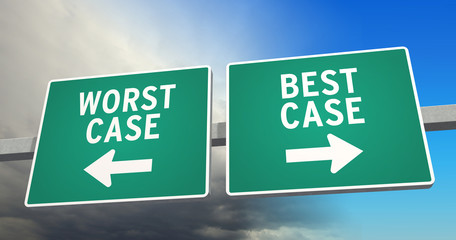 It doesn't matter what state you live in, there are bound to be certain laws that you adamantly agree with and others that you don't agree with. Driving laws are no different - some are good, and some are, based on various opinions, bad. If you live in the state of New Jersey, you might want to just brush up on all of them because numerous studies routinely rank New Jersey drivers among the worst in the nation! It's why taking a defensive driving course in NJ is so common among motorists in the Garden State, whether drivers are looking to keep a citation off their record or proactively lower their insurance rates.
With all of this in mind, here's a part of what New Jersey residents can expect to learn in a defensive driving course when it comes to laws of the road. Like we said in the opening, some you might think are good and others you might not. Have a look:
[framed_box]
It doesn't matter what state you live in, there are bound to be certain laws that you adamantly agree with and others that you don't agree with. Driving laws are no different - some are good, and some are, based on various opinions, bad. If you live in the state of New Jersey, you might want to just brush up on all of them because numerous studies routinely rank New Jersey drivers among the worst in the nation! It's why taking a defensive driving course in NJ is so common among motorists in the Garden State, whether drivers are looking to keep a citation off their record or proactively lower their insurance rates.
With all of this in mind, here's a part of what New Jersey residents can expect to learn in a defensive driving course when it comes to laws of the road. Like we said in the opening, some you might think are good and others you might not. Have a look:
[framed_box]
New Jersey Driving Laws: The Good
Speed Limits
 New Jersey is a congested state when it comes to motor vehicles, with many commuting to New York and elsewhere each day. Noting this, and the likelihood of traffic congestion, speed limits are designed to reflect this. For instance, on New Jersey interstates, the speed limit is 55 miles per hour. On highways, it's typically 65 miles per hour. In most other states, speed limits tend to be at least 5 miles per hour faster.
New Jersey is a congested state when it comes to motor vehicles, with many commuting to New York and elsewhere each day. Noting this, and the likelihood of traffic congestion, speed limits are designed to reflect this. For instance, on New Jersey interstates, the speed limit is 55 miles per hour. On highways, it's typically 65 miles per hour. In most other states, speed limits tend to be at least 5 miles per hour faster.
Honk First
 According to New Jersey law, before motorists can pass a bicyclist or skateboarder, they first must honk. It's a bit of an odd law, but we think it's a good one. After all, not only are drivers giving fair warning to someone that they're passing, but depending on how annoying the skateboarder or cycler is acting, the honk can also let out some frustration. Unfortunately, not a lot of people follow this law. We think it's time to change that. Honk away everyone!
[/framed_box]
[framed_box]
According to New Jersey law, before motorists can pass a bicyclist or skateboarder, they first must honk. It's a bit of an odd law, but we think it's a good one. After all, not only are drivers giving fair warning to someone that they're passing, but depending on how annoying the skateboarder or cycler is acting, the honk can also let out some frustration. Unfortunately, not a lot of people follow this law. We think it's time to change that. Honk away everyone!
[/framed_box]
[framed_box]
New Jersey Driving Laws: The Bad
Early-Bird Driving Laws
 There are two steps that New Jersey drivers must pass to get their basic driver's license: a permit period and a provisional period. Drivers must drive supervised with a permit for six months before they can move on to the provisional license stage, which consists of one year of unsupervised, yet restricted, driving. In order to receive a basic driver’s license, where there are no restrictions, drivers must have completed both the permit and provisional stages without incident and be 18 years old. We like the emphasis on experience and safety, but some drivers might not like the restrictions during these various stages.
There are two steps that New Jersey drivers must pass to get their basic driver's license: a permit period and a provisional period. Drivers must drive supervised with a permit for six months before they can move on to the provisional license stage, which consists of one year of unsupervised, yet restricted, driving. In order to receive a basic driver’s license, where there are no restrictions, drivers must have completed both the permit and provisional stages without incident and be 18 years old. We like the emphasis on experience and safety, but some drivers might not like the restrictions during these various stages.
It's Illegal to Frown at a Police Officer
 We're guessing that this one doesn't get enforced too much, but it's still an odd one. We can't imagine too many people are happy when they get pulled over for a traffic citation.
We're guessing that this one doesn't get enforced too much, but it's still an odd one. We can't imagine too many people are happy when they get pulled over for a traffic citation.
Intoxication Means No Personalized Plates
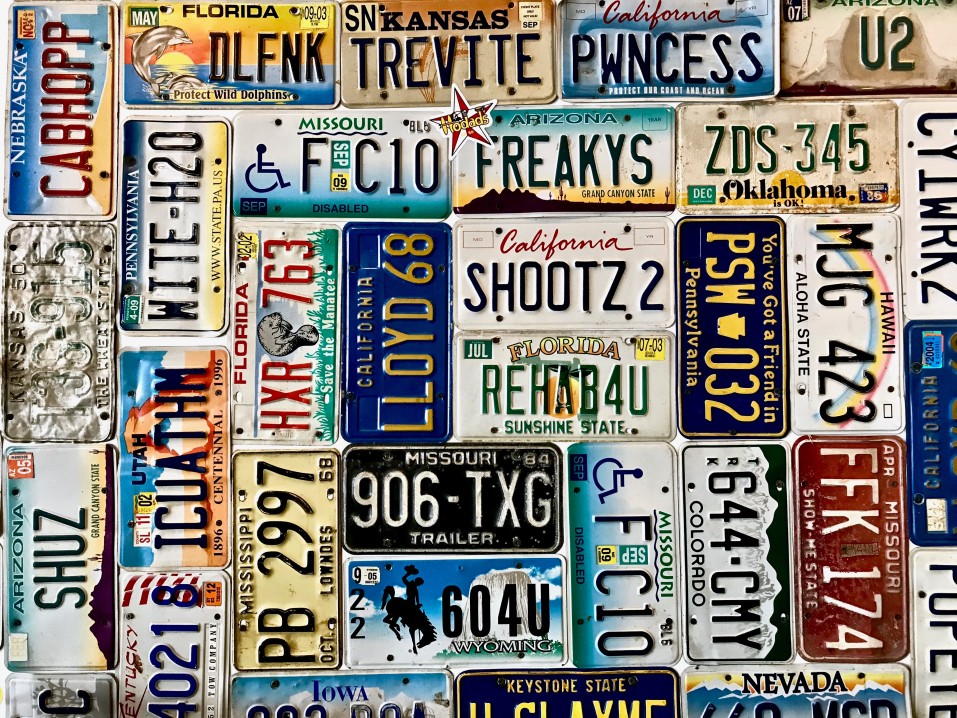 We're all about giving drivers second chances and helping them learn from their mistakes. So that's why we think it's silly that a driver that's been convicted of driving while intoxicated can never apply for or receive a personalized license plate. Like we said, everyone makes mistakes - and while driving while under the influence is certainly a very serious one, this law seems a little bit harsh.
[/framed_box]
Regardless of your take on any of these New Jersey driving laws in this piece - or any other laws that we didn't mention in here - it's important to keep in mind that laws are in place for a reason. Usually, that reason is to keep motorists and pedestrians safe. In our New Jersey defensive driving course, we'll cover these laws and more. Contact us today for more information.
We're all about giving drivers second chances and helping them learn from their mistakes. So that's why we think it's silly that a driver that's been convicted of driving while intoxicated can never apply for or receive a personalized license plate. Like we said, everyone makes mistakes - and while driving while under the influence is certainly a very serious one, this law seems a little bit harsh.
[/framed_box]
Regardless of your take on any of these New Jersey driving laws in this piece - or any other laws that we didn't mention in here - it's important to keep in mind that laws are in place for a reason. Usually, that reason is to keep motorists and pedestrians safe. In our New Jersey defensive driving course, we'll cover these laws and more. Contact us today for more information.
How Much is a New Jersey Speeding Ticket?
[framed_box]Speeding Tickets in Different States:
- Speeding Tickets in California
- Speeding Tickets in Florida
- Speeding Tickets in Texas
- Speeding Tickets in Arizona
- Speeding Tickets in New York
- Speeding Tickets in Alabama
 If you drive over the speed limit, you run the risk of getting pulled over for speeding. When you are pulled over, the police officer has the discretion to issue you a warning or write you a ticket. If you were one of the unlucky ones who received a ticket, you may find yourself wondering how much a New Jersey speeding ticket will cost you. The fine associated with the speeding ticket is not the only expense you will incur because of the ticket. You may decide to participate in traffic school if you are eligible or you may take allow the ticket to hit your driving record and have surcharges issued by the state for poor driving. Here are a few of the ways that a New Jersey speeding ticket can cost you and the expenses associated with the ticket.
If you drive over the speed limit, you run the risk of getting pulled over for speeding. When you are pulled over, the police officer has the discretion to issue you a warning or write you a ticket. If you were one of the unlucky ones who received a ticket, you may find yourself wondering how much a New Jersey speeding ticket will cost you. The fine associated with the speeding ticket is not the only expense you will incur because of the ticket. You may decide to participate in traffic school if you are eligible or you may take allow the ticket to hit your driving record and have surcharges issued by the state for poor driving. Here are a few of the ways that a New Jersey speeding ticket can cost you and the expenses associated with the ticket.
The Cost of the Speeding Ticket Itself
 If you are caught speeding, the amount you are fined varies based on where you were speeding and how many miles over the speed limit you were going. For a simple speeding violation, one where you are going one to nine miles over the speed limit, your fine will be $85. If you are 15 to 19 miles per hour over the speed limit, the fine increases to $180. And if you are 30 to 39 miles per hour over the speed limit, your fine will be $240 to $260. Additionally, there are factors that increase fines. If you are in a construction zone, in a safe corridor, in a school zone or speeding through a crosswalk, your fines will increase. If you are looking to find out what the exact fine is for your violation, be sure to check out this chart. Also, keep in mind that these are standard fines. If you go to court and appeal the ticket, the judge has the discretion to throw the ticket out or reduce your fine amount.
If you are caught speeding, the amount you are fined varies based on where you were speeding and how many miles over the speed limit you were going. For a simple speeding violation, one where you are going one to nine miles over the speed limit, your fine will be $85. If you are 15 to 19 miles per hour over the speed limit, the fine increases to $180. And if you are 30 to 39 miles per hour over the speed limit, your fine will be $240 to $260. Additionally, there are factors that increase fines. If you are in a construction zone, in a safe corridor, in a school zone or speeding through a crosswalk, your fines will increase. If you are looking to find out what the exact fine is for your violation, be sure to check out this chart. Also, keep in mind that these are standard fines. If you go to court and appeal the ticket, the judge has the discretion to throw the ticket out or reduce your fine amount.
New Jersey SPEEDING TICKET COST TABLE
| M.P.H. OVER LIMIT | SPEEDING: |
SPEEDING: |
SPEEDING: |
| 1 - 9 m.p.h. | $85.00 | $140.00 | 2 Points |
| 10 - 14 m.p.h | $95.00 | $160.00 | 2 Points |
| 15 - 19 m.p.h. | $105.00 | $180.00 | 4 Points |
| 20 - 24 m.p.h. | $200.00 | $360.00 | 4 Points |
| 25 - 29 m.p.h. | $220.00 | $380.00 | 4 Points |
| 30 – 34 m.p.h. | $240.00 | $400.00 | 5 Points |
| 35+ m.p.h. | $260.00 | $420.00 | 5 Points |
Points
 The state of New Jersey uses a point system. If you are given traffic tickets or involved in car accident, you receive points on your driving record. The number of points you receive for a speeding ticket varies, based on how many miles over the speed limit you were going. You receive two points if you are 1-14 miles per hour over the speed limit, four points if you are 15 to 29 miles per hour over and five points if you are 30 miles per hour over the speed limit or more. If you exceed more than six points in a three year period, the state of New Jersey will issue you a $150 surcharge plus $25 for each additional point. These fines remain in effect yearly until your points drop below six and if you fail to pay, you can lose your license. If you go a year with no infractions, you lose three points, which is the best way to reduce your points.
The state of New Jersey uses a point system. If you are given traffic tickets or involved in car accident, you receive points on your driving record. The number of points you receive for a speeding ticket varies, based on how many miles over the speed limit you were going. You receive two points if you are 1-14 miles per hour over the speed limit, four points if you are 15 to 29 miles per hour over and five points if you are 30 miles per hour over the speed limit or more. If you exceed more than six points in a three year period, the state of New Jersey will issue you a $150 surcharge plus $25 for each additional point. These fines remain in effect yearly until your points drop below six and if you fail to pay, you can lose your license. If you go a year with no infractions, you lose three points, which is the best way to reduce your points.
Traffic School Costs
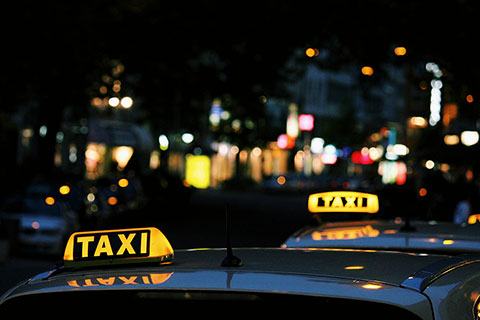 Another way to reduce the number of points you have on your driving record is to take traffic school or a defensive driving course. In New Jersey, you can take NJ traffic school to remove two points from your record once every five years. Because of this, you may wish to participate in driving school if you have received a speeding ticket. In New Jersey, the lowest price allowed by law for this course is $20. There is no maximum cost allowed by law. Additionally, once you complete one of these courses, insurance companies may reduce your insurance by up to ten percent for two to five years.
If you are pulled over for speeding, research shows that being honest with the cop about why you are speeding, as well as being polite and courteous, are the best ways to avoid a ticket. However, no matter how honest or polite you are, some days a cop has a no-tolerance stance and will issue you a ticket. When this occurs, that speeding ticket will cost you. Learning how much will help you budget so you can pay off the fine and the associated costs.
Another way to reduce the number of points you have on your driving record is to take traffic school or a defensive driving course. In New Jersey, you can take NJ traffic school to remove two points from your record once every five years. Because of this, you may wish to participate in driving school if you have received a speeding ticket. In New Jersey, the lowest price allowed by law for this course is $20. There is no maximum cost allowed by law. Additionally, once you complete one of these courses, insurance companies may reduce your insurance by up to ten percent for two to five years.
If you are pulled over for speeding, research shows that being honest with the cop about why you are speeding, as well as being polite and courteous, are the best ways to avoid a ticket. However, no matter how honest or polite you are, some days a cop has a no-tolerance stance and will issue you a ticket. When this occurs, that speeding ticket will cost you. Learning how much will help you budget so you can pay off the fine and the associated costs.
Different States Speeding Ticket
How to save on car insurance: A guide for first time NYC drivers
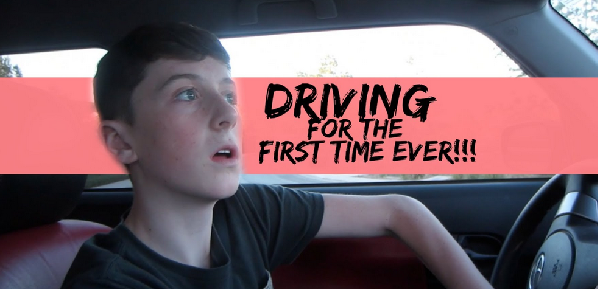 Is this your first time owning a car? If so, then you are probably excited. With a personal vehicle comes the freedom of movement everyone desires. No more waiting on buses and subways. You can now come and go whenever you want, uninhibited by transit schedules.
But, you must always remember that car ownership entails great responsibility. Motorists hold their own safety and that of others in their hands. This is why you must have auto insurance in case you are involved in an accident. NYC wants you to be able to pay for any damage caused.
So, now you are probably wondering how much will this car insurance cost, right? Good question.
Read on to find out some of the factors that can raise and lower policy rates for a first-time NYC driver.
[framed_box]
Is this your first time owning a car? If so, then you are probably excited. With a personal vehicle comes the freedom of movement everyone desires. No more waiting on buses and subways. You can now come and go whenever you want, uninhibited by transit schedules.
But, you must always remember that car ownership entails great responsibility. Motorists hold their own safety and that of others in their hands. This is why you must have auto insurance in case you are involved in an accident. NYC wants you to be able to pay for any damage caused.
So, now you are probably wondering how much will this car insurance cost, right? Good question.
Read on to find out some of the factors that can raise and lower policy rates for a first-time NYC driver.
[framed_box]
How does age impact my auto insurance rates?
As is true of most first-time drivers, you are probably young of age. If so, be prepared to pay more than the national average for your auto insurance. In general, insurance companies charge more for young first-time drivers for two reasons. First, the driver is at an impressionable age. They are more likely than older adults to drive fast when hanging out with friends. Also, drinking and driving is a known problem among teens and young adult motorists. Second, you are a first-time driver. Even if you are advanced in age, insurers will probably charge you a bit more. Your inexperience works against you here. [/framed_box] [framed_box]Does my neighborhood impact my auto insurance rates?
Certain neighborhoods and boroughs in NYC are ridden with crime. Many of the criminals are car thieves. As a result, if you reside in one of these areas, expect to pay more than normal to be insured. The risk is just higher than if you lived in a safer community. [/framed_box] [framed_box]Does a defensive driving course lower my auto insurance rates?
You can lower your rate by taking driver education classes. Young people often mitigate some of the extra charges heaped upon them because of age by taking driving classes in high school. Every driver can benefit by enrolling in a New York defensive driving course. The schools offer classes both online and in-person. Best of all, after course competition, you receive a 10 percent auto insurance discount for the next three years. [/framed_box] [framed_box]What impact does my vehicle type have on my car insurance rate?
Insurance companies also look at the type of vehicle when assessing rates. Some models get stolen more than others. Owners will have to pay more because of this risk. In other cases, you may own a sports car known for having horsepower more than what the average motorist can handle. And, your insurer may well raise your policy rate because of this fact. [/framed_box] [framed_box]How much does my credit score influence my auto insurance rate?
Since you are a first-time driver with no driving history, the insurance company will take other factors into consideration. One is your credit rating. If you have good credit, the company may lower your insurance rate a bit. A positive credit score proves you are a responsible person in general. [/framed_box] [framed_box]Does my education background impact my car insurance rate?
Likewise, college students can get lower than normal rates for first time drivers. Their desire to seek a higher education is positive. They are high achievers. They are presumed to perhaps better understand the effects of risky driving on society. [/framed_box] [framed_box]Time to get insured and save money with our tips!
Now that you know how the insurance companies decide how much to charge first time drivers, you are ready to get insured. Try to work on things you can change. For example, attend a New York defensive driving school, pay off outstanding credit cards and enroll in college classes. These types of decisions will make you appear more responsible and can result in a lower insurance rate. [/framed_box]Answering common NJ & NY defensive driving course questions.
 So, you are thinking about taking a defensive driving course but do not know where to turn? Relax, many out there have been in your situation. They know that attending so-called traffic school is good for them. However, they have no idea where to get NY or NJ defensive driving answers.
To help you make your decision about whether to take one, following are the top questions and answers about the these somewhat feared programs.
So, you are thinking about taking a defensive driving course but do not know where to turn? Relax, many out there have been in your situation. They know that attending so-called traffic school is good for them. However, they have no idea where to get NY or NJ defensive driving answers.
To help you make your decision about whether to take one, following are the top questions and answers about the these somewhat feared programs.
Can I find the answers to my defensive driving course online?
 Once you begin your course you may find the questions harder than you thought. True, the instructors are there to help you pass. However, they will not just hand the certificate to you. Instead, they expect you to do some work.
Do not get too worried! The answers are always available to you. For example, if you are taking an online course, the answers are in the school’s online material. You can also search the state DMV website. The department usually lists the pertinent rules of the road and any recent changes to the laws.
You will also want to re-read the course material. Perhaps you missed the answer while reading a little too quickly.
If the class is in-person or taken as a group, you can ask the other students where they located the answers.
Last, but certainly not least, ask your instructor or the school staff. They will be more than willing to help. Just be sure that you have really tried to complete the assignment before making a request.
Once you begin your course you may find the questions harder than you thought. True, the instructors are there to help you pass. However, they will not just hand the certificate to you. Instead, they expect you to do some work.
Do not get too worried! The answers are always available to you. For example, if you are taking an online course, the answers are in the school’s online material. You can also search the state DMV website. The department usually lists the pertinent rules of the road and any recent changes to the laws.
You will also want to re-read the course material. Perhaps you missed the answer while reading a little too quickly.
If the class is in-person or taken as a group, you can ask the other students where they located the answers.
Last, but certainly not least, ask your instructor or the school staff. They will be more than willing to help. Just be sure that you have really tried to complete the assignment before making a request.
Can I complete my defensive driving course online?
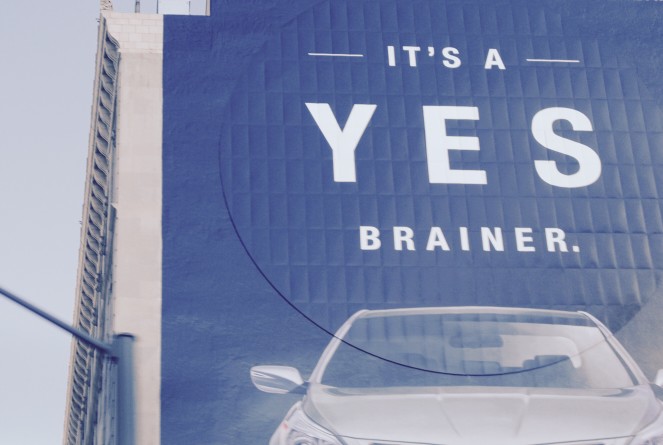
In the past, you had to attend NY defensive driving school in person. Today, you can go to the school or complete the course online. This fact has made attending traffic school a no-brainer. Everyone in New York and New Jersey should take one of these courses to become a safer driver.
One benefit of the online course is that you can enroll with a group. Many workplaces and households sign up this way. They take classes online at their convenience.
Check to see if your chosen school offers a group enrollment discount!
What if I fail my defensive driving course?
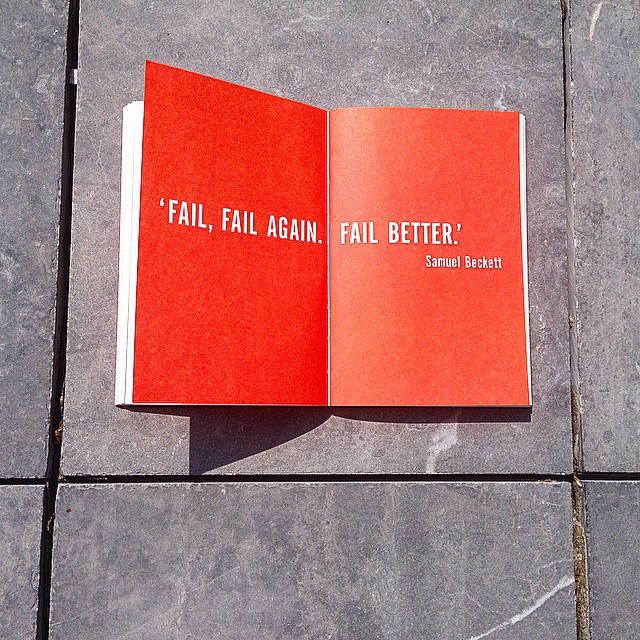
The only way to fail the NY or NJ defensive driving course is if you don’t finish it. As long as you put in the minimum required time (six hours total), you will pass and receive your credits!
Are the instructors teaching the online defensive driving course difficult?
You might imagine a Defensive Driving classroom instructor as being some hardcore DMV staffer who is out to fail students. Perhaps you think they will be a former Marine drill instructor who still thinks they are in the Corps. In reality, some instructors are retired DMV workers and veterans! Yet, you can relax. Their job is not to punish you for mistakes but to ensure that you learn from them.
Does completing a defensive driving course dismiss a traffic ticket in NJ or NY?
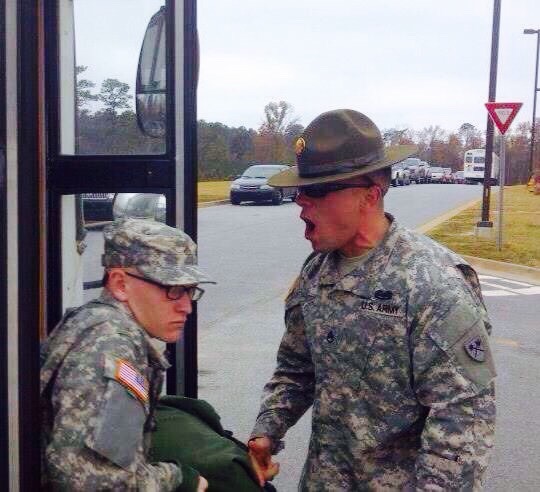
Unlike some states, taking a NY or NJ defensive driving will not dismiss a traffic ticket. Rather, it may help you combat points being added to your record. Check with the traffic court first before you begin the course. They will be able to advise you when you should complete the course for the best results.
Do I earn an auto insurance discount after completing my defensive driving course?
Can I complete assignments for my defensive driving course on my phone/other mobile device?
 The best schools offer many ways to access the course material, including mobile platforms. Always check with the admissions office about accessibility and compatibility prior to enrolling.
The best schools offer many ways to access the course material, including mobile platforms. Always check with the admissions office about accessibility and compatibility prior to enrolling.
It's time to enroll in your defensive driving course!
Now that you know the top NY and NJ defensive driving course answers, you are ready to enroll! Get started right away while you are still highly motivated to succeed. Best of luck!Other Resources
Do defensive driving courses reduce DMV points in NY & NJ?
If you have received a traffic ticket or were at-fault in an accident, the Department of Motor vehicles issues you a certain number of points. Different infractions and reasons for accidents are assigned different point values. If you reach a certain level of points, your driver's license may be suspended. However, signing up for a defensive driving course may reduce the number of points you have on your driving record. This is important because insurance companies look at the number of points you have when deciding how much you will pay for insurance, and reducing your points helps to prevent your license from being suspended. Here is some more information you will want to know about defensive driving courses and point reduction in both New York and New Jersey.How many DMV points can I remove by completing a defensive driving course in New York?
In the state of New York, you can take a defensive driving course once every 18 months to reduce the number of points on your driving record. Participating in one of these courses can reduce up to four points from your record toward a license suspension. However, taking this course will only reduce active points or points accumulated in the last 18 months. To have the points taken off, you must enroll in a New York approved DMV defensive driving course. If you take a course that is not DMV approved, your points will not fall off. Upon completion, the school will notify DMV and they will take the points off your record. You will also receive a certificate of completion from the school. It is up to you to mail a copy of this certificate to your auto insurer. By law, your auto insurer is required to give you a ten percent auto insurance discount off your liability, no fault and collision premiums for three years after taking this course.How many DMV points can I remove by completing a defensive driving course in New Jersey?
In the state of New Jersey, you can take a defensive driving course once every 5 (five) years to reduce up to two points from your driving record. You can take this course anytime you have points on your record if you have not had points removed in the past three years. The infractions do not need to be recent. To receive this discount, you must enroll in a course approved by the New Jersey Motor Vehicle Commission. Just like in the state of New York, you automatically qualify for a ten percent discount on your liability, no-fault and collision premiums for three years after taking this course. You will need to submit the certificate of completion to your insurance company to qualify for this discount. If you have received a ticket or were involved in an accident for which you were found at fault, the state-licensing department in your state will issue points against your driving record. Your auto insurer will then see those points and increase your auto insurance rates. Fortunately, the states realize that everyone makes a mistake and a single traffic infraction does not make you a bad driver. As such, both New York and New Jersey will allow you to take part in a defensive driving course to remove a certain number of points from your record and receive a discount on your auto insurance premiums. This is a great way to improve your driving, while also ensuring you are not punished for a prolonged period of time due to one driving mistake.For information on California DMV Release of Liability, click: California DMV Release of Liability
New Jersey Drivers Can’t Smile
Successfully passing your driver's test and receiving your New Jersey license is a cause for celebration. However, resist the urge to grin during your photo session. New Jersey's latest facial recognition software struggles to correctly identify smiling faces. So, just keep it serious folks! This technology aims to enhance security by comparing photos across the state's database, and refusing to smile ensures the system works effectively. Consider it a small price for extra safety on the road. Facial recognition software is being used more and more for identification purposes. In many cases it has proven more accurate in identifying individuals from a large crowd, such as sorting through a data base of millions of images. Law enforcement groups use it to prevent identity thieves who once only needed a new photo to create a bogus license. However, just because New Jersey state officials say smiling will screw with the software doesn't mean it's true. In fact, Pennsylvania to the West, and Delaware to the North, both also use facial recognition software and they allow people to smile for their driver's license. And the makers of facial recognition say it doesn't make any difference if the person smiles (or frowns) the computer software they use tracks a variety of points on the face and makes allowances for adjustments to the face--that's how they can pick people out of a crowd or identify them even when they are disguised. Leave it to New Jersey to make their citizens look as grumpy as the rest of the country thinks they are.NJ State Trooper Busted For DUI
Do you believe police officers never make mistakes? If only it were so. The truth is, officers are everyday folks like everyone else. Despite years of training and enforcing laws, especially driving ones, they can be just as clumsy behind the wheel as anyone else. New Jersey State Trooper Kevin T. Byrne, 33, of Spring Lake Heights, is an example of this. Byrne has been charged with driving under the influence of alcohol, careless driving likely to endanger person or property, and leaving the scene of an accident after crashing into two parked cars in a Monmouth County neighborhood, before slamming his trooper's car into a backyard creek and and fleeing. The charges are not increased when a police officer commits a crime of any kind, but you can bet it costs him plenty. He will likely lose his job, his career and his future in law enforcement. To say nothing of the fact he will likely be outcast from his circle of police friends.The State Police’s alcohol policy states that even off-duty troopers are prohibited from drinking, even while on vacation, to the extent it might affect their work because they could be recalled at any time — particularly if they are a member of an emergency response team. Byrne is assigned to the Central T.E.A.M.S. unit, a highly specialized group of emergency responders. Troopers found in violation of the policy can be dismissed from the force. The final decision rests with Superintendent Col. Rick Fuentes.
South Jersey Seeing Rise In Teen Vehicle Crashes
South New Jersey feels like a whole different world compared to the busy streets of New York. Yet, it's got its own troubles to tackle. Surprisingly, there's been a big jump in car crashes involving young drivers. A report recently highlighted this alarming trend, painting quite a worrying picture. It's crucial to know about this if you or someone you care about drives in the area. Stay with us to find out what's really happening on these roads and what can be done to make them safer.According to the South Jersey Traffic Safety Alliance: “Teen drivers typically only account for 12 to 15 percent of the deaths,” SJTSA Program Manager Teresa Thomas said. “But for 2012, they are responsible for 36 percent in South Jersey.” Of the 28 fatal motor vehicle crashes that took place in Cumberland, Salem, Atlantic and Cape May counties in the first six months of this year, 10 involved drivers between the ages of 16 and 20.That is nearly double the number of teen driving fatalities they have come to expect to see in a year, and even worse when you consider that is a number they are actively trying to reduce year after year. The information for SJTSA report was gathered directly from the New Jersey State Police who track every vehicle crash, its cause and determining factor, daily. It is no doubt disheartening to see an increase in deadly crashes by teen drivers in a state which has used a graduated licensing program for many years now and had been seeing a marked decline in the number of teen driving deaths. The graduated licensing program required teens to drive only under adult supervision for a period of time before gradually being given more leeway to drive on their own. It seems likely that this most recent report will result in further examination of teen driving safety and perhaps a flurry of public safety awareness campaigns to counter this most deadly of trends. Visit our web site for more traffic safety via our online classes!
Distracted Driving Fines Double In New Jersey
The New Jersey legislature **tackles** the dangerous habit of texting and driving with a **firm stance**. New laws now target this risky behavior, **doubling fines** for those caught in the act. In the past year a great deal of focus has been placed on distracted driving. In December the National Traffic Safety Administration released a report stating that distracted driving now caused more fatal collisions than driving under the influence of alcohol, a shattering statistic and the first time DUI was not the leading cause of fatal traffic crashes. Since that report was released a number of similar studies were conducted by insurance carriers and universities which found the same thing, adding emphasis to calls for more legislation concerning distracted driving. Some states already had distracted driving bans on the books, such as New York and California, but other states needed to draft and approve new legislation. New Jersey had legislation on the books, but some there felt the existing law was too lax and worked diligently to increase the punishments for anyone caught driving distracted. Such is the case in New Jersey:The bill (S69) would double the fine from $100 to $200 for a first offense, and increase it to $400 for the second offense and $600 for a third. Third and subsequent offenses would carry three point penalties on driver’s licenses. And after the third time they’ve been caught, a judge can decide whether to suspend a driver’s license for 90 days.Regardless of the legislation imposed by state laws, defensive drivers know that they should not be looking away from the road, or reducing their awareness of what is going on around them if they really want to drive safe. There is no substitute for common sense and so far, no way to legislate everyone get some either.
New Jersey Law Targets Aggressive Driving
Aggressive drivers are a real danger to everyone on the road. They're the exact opposite of **defensive drivers**. Defensive drivers always follow the law, keep their cool, and understand the importance of being safe and responsible. They never let **frustration** take over while they're in the car. New Jersey Governor Chris Christie signed into law this week a new provision meant to curb instances of aggressive driving by providing for jail time for the aggressor any time that aggression leads to an injury. At the signing Christie told reporters: "It does not permit you to act out every one of your childish tantrums while behind the wheel of a vehicle." The new law states that "aggressive driving" now also encompasses motor vehicle offenses usually classified under reckless and careless driving laws, including driving more than 25 mph over the speed limit, failing to yield and following too closely. Also included in the new aggressive driving law are verbal threats, flashing headlights and insulting gestures "designed to display anger or to intimidate or threaten" a person driving lawfully. Aggressive driving behaviors are not limited to New Jersey, however. According to a 2009 study by the AAA Foundation for Traffic Safety, more than half of all vehicle crashes in the United States are caused by aggressive driving. New Jersey just became the 15th state to directly address the risks inherent with aggressive driving and define what is and is not aggressive driving. Pennsylvania already has an Aggressive Driving Enforcement and Education Program, and regularly conducts patrols aimed at finding and citing aggressive drivers. By passing a law which well defines aggressive driving, New Jersey is taking a stance firmly on the side of defensive drivers, and sending a message loud and clear than anything less simply will not be tolerated.New Jersey Cell Phone Ban Not Having Desired Effect
A recent study of crash data reveals that even though New Jersey has a strict ban on texting while driving, there's still a **significant number of accidents** happening because of this kind of distraction. New Jersey passed its first ban on using a handheld cell phone while driving in 2004 as a secondary violation. That meant that drivers could only be ticketed for using their cell phone while driving if they had pulled over by police for other driving infraction. In 2008, following a surge in crashes caused by distracted driving linked to cell phone use, state legislators made using a cell phone while driving a primary driving offense. That meant that police were given the authority to stop and cite drivers they saw actively violating the cell phone while driving ban. It was thought increased vigilance and greater authority by police would help turn the tide of crashes linked to distracted driving. But has it? There were nearly 3,600 crashes linked to the use of cell phones while driving in 2006. Following the first ban, then the enhanced ban in 2008, those numbers did wane slightly, but in 2010, the most recent year for which driving crash data was available, there were 3,351 crashes linked to cell phone use while driving. Only slightly better than the year in which the total ban was made a primary offense. There seems to be little doubt that distracted driving inhibits safe driving and leads to an increased number of crashes, some of which result in injury or death. A National Transportation Safety Board report from December 2011 indicates that distracted driving results in more fatal crashes than driving under the influence of drugs or alcohol. This alone is enough to warrant further study into not only how to force drivers to stop using their handheld devices while driving, but also wake them up to just how dangerous it is.New Jersey Passing Lane In The Spotlight
[caption id="attachment_395" align="alignright" width="300"]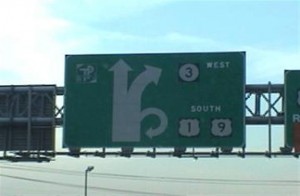 defensive driving, new jersey drivers[/caption]
New JerseyState Sen. Donald Norcross is behind new legislation which would increase fines for drivers who do not keep to the right.
Yes, driving in the "passing lane" is illegal in almost every state, but drivers are not often ticket for it, and if they are the fines are quite low. This is unfortunate, because drivers who insist on driving slow in the passing lane not only frustrate other drivers, they risk causing an accident.
In places where traffic congestion is heavy these drivers cause unneeded delays and in some cases force other drivers to drive recklessly in order to get around them. It is also a known trigger for incidents of "road rage."
That is what has led Norcross to suggest the fines for these "passing lane drivers" be increased. Under his suggested rule change minimum fines will be increased from $50 to $100 and the maximum fine from $200 to $300. This is still not as stiff as penalties for other types of driving infractions, but it might just be a wake-up call for some drivers.
Defensive drivers know that the passing lane, the left lane, is meant for drivers who are traveling faster than the flow of traffic, so they can move ahead. It is the law, yes, but it is also a matter of common courtesy. Driving in slow in the passing lane is like standing still on a staircase while other people are trying to get up and down. Do you have a right to just stand there? Yes. Does it mean you SHOULD just stand because have the right to do so? Of course not.
You might think that driving slow in the passing lane is simply a matter of having a little common sense and common courtesy, but for some New Jersey drivers that simply isn't enough. If the new legislation passes they will have the added incentive of a rather hefty fine to deal with too.
defensive driving, new jersey drivers[/caption]
New JerseyState Sen. Donald Norcross is behind new legislation which would increase fines for drivers who do not keep to the right.
Yes, driving in the "passing lane" is illegal in almost every state, but drivers are not often ticket for it, and if they are the fines are quite low. This is unfortunate, because drivers who insist on driving slow in the passing lane not only frustrate other drivers, they risk causing an accident.
In places where traffic congestion is heavy these drivers cause unneeded delays and in some cases force other drivers to drive recklessly in order to get around them. It is also a known trigger for incidents of "road rage."
That is what has led Norcross to suggest the fines for these "passing lane drivers" be increased. Under his suggested rule change minimum fines will be increased from $50 to $100 and the maximum fine from $200 to $300. This is still not as stiff as penalties for other types of driving infractions, but it might just be a wake-up call for some drivers.
Defensive drivers know that the passing lane, the left lane, is meant for drivers who are traveling faster than the flow of traffic, so they can move ahead. It is the law, yes, but it is also a matter of common courtesy. Driving in slow in the passing lane is like standing still on a staircase while other people are trying to get up and down. Do you have a right to just stand there? Yes. Does it mean you SHOULD just stand because have the right to do so? Of course not.
You might think that driving slow in the passing lane is simply a matter of having a little common sense and common courtesy, but for some New Jersey drivers that simply isn't enough. If the new legislation passes they will have the added incentive of a rather hefty fine to deal with too.
New Jersey Drivers Need To Move Over: It’s The Law
"In New Jersey, the **left lane** on a two-lane road (both lanes going the same way) is **only for passing**. So, if you're just driving along, stick to the **right lane**." Unfortunately not all drivers know this law, or, if they do, they simply ignore it. The law is pretty clear, however, even printed in the New Jersey Driver's Manual: The left lane is only for passing. Violators face a possible citation and fine of $100, although the law is not regularly enforced. Why do New Jersey drivers need to keep right except when they are passing? Well, to keep traffic controlled and flowing, for one. If drivers ride side by side, and decided to do so at a minimum speed, other drivers who are moving at a faster rate cannot get by them. This impedes traffic. And the northeastern United States is known for having high levels of traffic, so anything that can help alleviate the problem is a boon to everyone. Another good reason to leave the left lane clear is so emergency vehicles always have a clear lane to get to their destination without the need to wait for a drive to move over. Driving in the left lane is really just a case of someone doing whatever they want just because they can. It's rude to other drivers and not an example of common sense, defensive driving. Last summer New Jersey state Senator Donald Norcross (D-Camden/Gloucester) introduced legislation increase the maximum penalty for violation of the “keep right” law from $100 to $300. He also suggested a portion of the fees collected be put into a fund to purchase "move over" signs for posting along roadways as a reminder to drivers who might be unaware of the law, or just forgetful. It might also provide an impetus for police to begin enforcing the law for public safety reasons. In the meantime, if you drive in New Jersey be certain you do it in the right hand lane or risk a fine and the ire from other drivers who can't get past you. Image: ntwowe / FreeDigitalPhotos.net7-Day Support
Rain, snow, or shine - our support team is here 7 days a week ready assist you with any questions you may have.
(800) 660-8908
Privacy Policy

Refund Policy – Made Simple

Terms of Use

Nepal Relief Fund
A portion of today's sale will go towards helping the earthquake victims in Nepal.
Earn Money With Your Car
Register with UBER and receive a New York TLC Defensive Driving class for FREE by using the UBER provided coupon code.

 Live Chat
Live Chat


